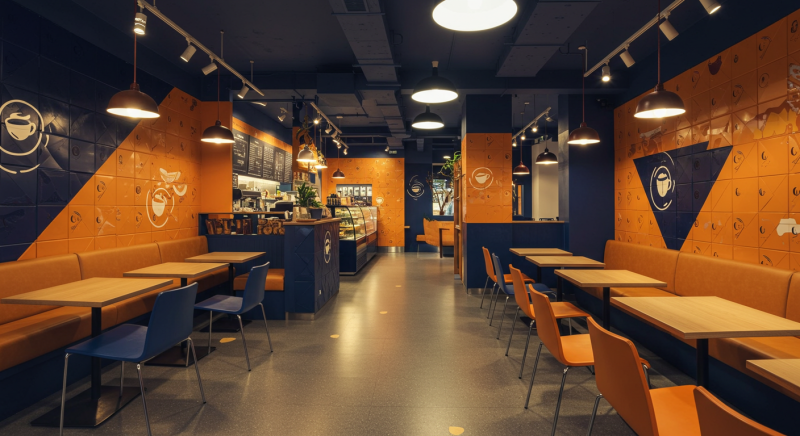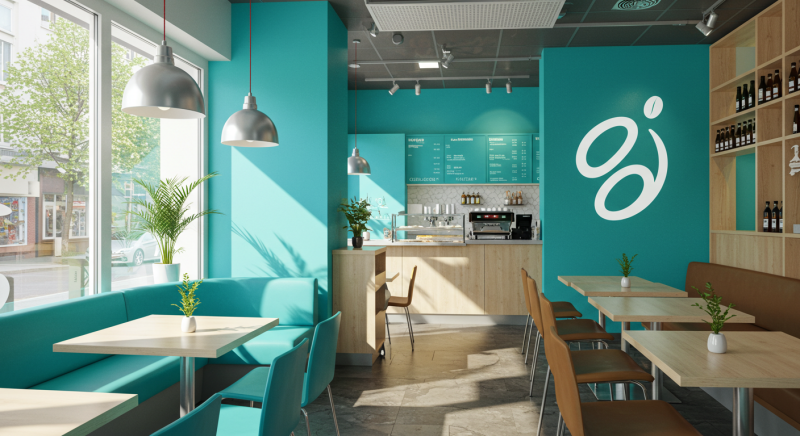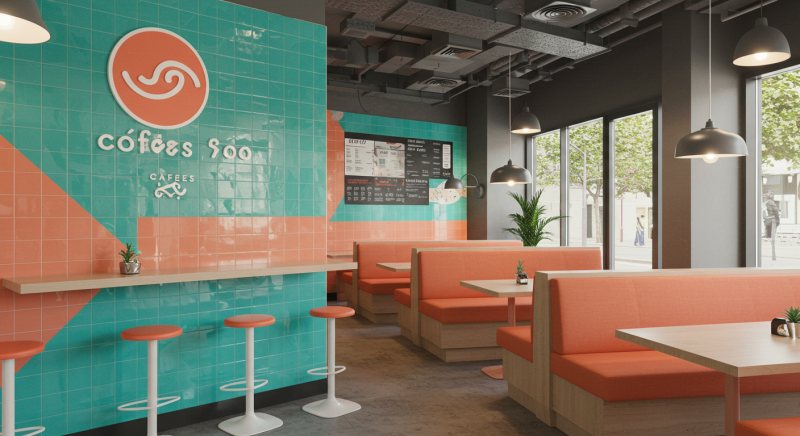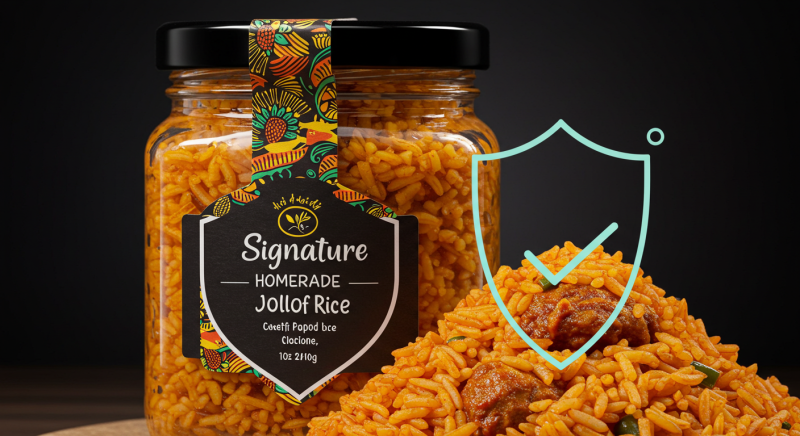Imagine the heartwarming aroma of jollof rice wafting through a bustling Lagos street, the pride of generations encapsulated in every bite. For the owners of this cherished cuisine, the thrill of creating a signature dish can quickly turn to despair when copycats dilute their life’s work. Trademark protection for Nigerian food and beverages companies stands between this fervent passion and the looming threat of infringement, ensuring authentic creators receive the recognition and legal backing they deserve.
In recent years, Nigeria’s food and beverage sector has become a cornerstone of national growth, contributing 22.5 percent to manufacturing and projected to expand to USD 19.31 billion by 2030, underscoring the critical need for Trademark protection for Nigerian food and beverages companies to safeguard brand identity and consumer trust Flanders Investment and Trade Mordor Intelligence. Drawing on WIPO data that places Nigeria 136th globally in trademark filings and leveraging both national and Madrid System routes, this guide outlines how entrepreneurs can navigate legal frameworks to secure exclusive rights for their food products, restaurants, and cafes WIPO.

Key takeaways
Throughout this news‑style how‑to guide, you will see why Trademark protection for Nigerian food and beverages companies is not merely a legal formality but a strategic imperative in a landscape where the sector now accounts for 4.6 percent of GDP and is poised for double‑digit growth. You will learn a clear, step‑by‑step roadmap to conducting thorough trademark searches, filing applications with the Trademarks, Patents and Designs Registry, and extending your protection internationally via the Madrid Protocol. Real‑world statistics and expert insights will illuminate how securing your trademark bolsters consumer confidence, deters counterfeiters, and preserves brand integrity as Nigeria’s foodservice market marches toward a USD 19.31 billion valuation by 2030 Flanders Investment and TradeMordor Intelligence.
The rise of the industry and the urgency of Trademark protection for Nigerian food and beverages companies
Nigeria’s food and beverage sector not only fuels local businesses but also propels economic recovery, with manufacturing now driven by food, beverage, and tobacco sub‑sectors contributing 9.2 percent (₦3.37 trillion) to GDP in the first half of 2024 Intelpoint. As services and hospitality rebound—reflected in Nigeria’s 3.46 percent Q3 2024 GDP growth—entrepreneurs must act swiftly to lock down their trademarks, ensuring their hard‑earned reputations cannot be hijacked by imitators Reuters.
How to secure Trademark protection for Nigerian food and beverages companies
This expanded how‑to guide lays out a clear, step‑by‑step roadmap to securing Trademark protection for Nigerian food and beverages companies, from conducting a thorough preliminary search through to international expansion, ensuring your brand remains unique and legally safeguarded in a competitive market LinkedIn.
1. Conduct a comprehensive preliminary clearance search
Begin by running an exhaustive trademark search through the Nigerian Trademarks, Patents and Designs Registry’s online portal to identify any identical or confusingly similar marks that could block your application LinkedIn.
Include a global search via the WIPO Global Brand Database to catch potential conflicts beyond Nigerian borders, a key step when focusing on Trademark protection for Nigerian food and beverages companies eyeing export markets WIPO.
2. Classify your goods and services accurately
Determine the correct Nice Classification classes for your products—most food and beverage trademarks fall under Class 29 (meat, processed fruits), Class 30 (flour, coffee, rice) and Class 43 (restaurant and café services) Aelex.
Registering under every relevant class prevents competitors from introducing confusingly similar goods or services, a vital measure for full Trademark protection for Nigerian food and beverages companies Lexpraxis Solicitors.
3. Prepare and file your trademark application
Draft a clear representation of your mark—wordmar, logo or device—and gather applicant details including full name, address, nationality, and a signed power of attorney appointing an accredited local agent nipo.gov.ng.
Complete the duly‑formatted Trade Mark Form 1, attaching your mark depiction, list of classes with specific goods/services, and the prescribed filing fees before submitting to the Federal Ministry’s online filing portal iponigeria.com.
4. Navigate examination and publication
Upon filing, the Registry will examine your application for compliance and absolute grounds, issuing an acceptance or refusal letter—typically within four to six months nipo.gov.ng.
If accepted, your mark is published in the Trademarks Journal to trigger a two‑month opposition window; successful navigation of this stage cements initial Trademark protection for Nigerian food and beverages companies Web Designs.
5. Overcome oppositions and secure registration
Should an opposition arise, engage experienced IP counsel to file timely counter‑statements or negotiate settlements, as unresolved disputes can derail your trademark rights ICA (Ibe Chido & Asociates).
Once cleared, the Registry issues your Certificate of Registration—your definitive proof of exclusive rights under Trademark protection for Nigerian food and beverages companies Trademarkia.
6. Maintain, monitor and enforce your rights
Trademark registrations in Nigeria last ten years from filing and are renewable indefinitely for subsequent ten‑year periods, provided renewal fees are paid punctually Lexology.
Proactively monitor marketplaces, online platforms, and trade publications for infringing uses; send cease‑and‑desist letters or enforce through local courts and regulatory agencies to uphold your Trademark protection for Nigerian food and beverages companies
7. Expand internationally via the Madrid Protocol
Leverage Nigeria’s membership in the Madrid Protocol to file a single international application covering multiple jurisdictions, extending your priority filing date back to your Nigerian application for seamless global Trademark protection for Nigerian food and beverages companies WIPO.
8. Practical tips for success
Engage an IP specialist familiar with food and beverage branding to navigate class nuances and drafting challenges Resolution Lawn.
Document each stage of use—product launches, menu rollouts, packaging changes—to strengthen enforcement actions and maintain an unbroken chain of Trademark protection for Nigerian food and beverages companies nipo.gov.ng.

Special considerations for restaurants and cafes
In the dynamic world of gastronomy, Trademark protection for Nigerian food and beverages companies takes on unique dimensions when applied to restaurants and cafes, where atmosphere and experience are as central to success as the menu itself. Beyond the mere registration of a name or logo, operators must consider the interplay of visual, sensory, and service elements that collectively form their distinctive brand identity.
Every element of a café or restaurant—from your signature color palette and custom lighting fixtures to the arrangement of seating and the texture of napkins—can become a hallmark of your establishment under the umbrella of Trademark protection for Nigerian food and beverages companies. When potential customers step through your doors, it is these subtleties that create an indelible imprint, setting you apart from competitors who might attempt to imitate your style. By formally including trade dress—such as your interior décor, the shape of your serving ware, or the pattern on your menu covers—in your trademark application, you reinforce legal claims over the total customer experience you’ve painstakingly crafted.
Moreover, the design of your digital presence—website layout, app interface, social‑media story templates—needs to be integrated into your broader Trademark protection for Nigerian food and beverages companies strategy. In today’s connected market, a café’s Instagram aesthetic and online ordering platform carry as much brand weight as its physical storefront. Securing trademarks for these digital assets not only prevents copycats from creating confusingly similar interfaces, but also ensures that customers can find and trust your brand across every channel.
Training and uniform design further extend this protective net. Staff attire, from aprons emblazoned with your logo to uniquely tailored service uniforms, contributes to a cohesive visual identity deserving of trademark safeguards. When every aspect of service—from the presentation tray to the handwritten chalkboard specials—bears your protected mark, you build a fortress around your brand that goes well beyond a simple name registration.
Ultimately, for restaurants and cafes, comprehensive Trademark protection for Nigerian food and beverages companies means viewing every sensory cue and service touchpoint as part of a unified brand ecosystem. By registering not only your core logo but also the surrounding ambiance and digital elements, you create a robust barrier against imitate competitors and cultivate an authentic, memorable experience that customers will recognize and return to again and again.
Protecting packaged food products
When it comes to packaged food, Trademark protection for Nigerian food and beverages companies must extend beyond the mere registration of a name—it must encompass every visual and textual element that communicates your brand’s promise of quality and authenticity NAFDAC. Under the Pre‑Packaged Food Labelling Regulations 2022, any pre‑packaged food product bearing a trademarked brand name must display that mark prominently on the Principal Display Panel, ensuring consumers immediately recognize your ownership and deterring would‑be infringers NAFDAC.
Given Nigeria’s strict metric-only labeling requirements, your packaging design must present net weight, volume, and ingredient listings in metric units without dual or multiple markings—failure to comply can lead to confiscation or refusal at ports and retail outlets, undermining your Trademark protection for Nigerian food and beverages companies Trade.gov. Before pursuing trademark registration, manufacturers must secure NAFDAC product registration by submitting samples, a certificate of trademark approval from the Federal Ministry, and evidence of quality analysis—integrating this step into your strategy solidifies legal backing for your packaging under Trademark protection for Nigerian food and beverages companies NAFDAC.
Beyond the brand name itself, consider the trade dress of your packaging: unique color schemes, illustrative motifs, and distinctive container shapes all contribute to consumer recognition and can be protected as part of your trademark portfolio Stren & Blan Partners. Registering these design elements under the Trade Marks Act not only blocks competitors from using confusingly similar packaging, but also empowers you to enforce your rights when imitative products hit the market ICLG Business Reports.
To avoid misleading consumers and running afoul of the Trademark Malpractices (Miscellaneous Offences) Act, ensure your brand name and trademarks do not overstate the nature, quality, or ingredients of your food product—accurate claims and transparent ingredient lists are legally mandated and reinforce trust in your Trademark protection for Nigerian food and beverages companies Mondaq.
For companies eyeing export opportunities, coordinating your NAFDAC approval with a corresponding trademark filing under Nigeria’s Trademarks Registry creates a seamless foundation for subsequent international applications via the Madrid Protocol, extending your Trademark protection for Nigerian food and beverages companies to new markets ProShare.
Finally, maintain an active monitoring program: routinely inspect retail shelves and online marketplaces for packaging that mimics your brand identity, and be prepared to issue cease‑and‑desist notices or initiate enforcement actions to uphold your exclusive rights under Trademark protection for Nigerian food and beverages companies Mondaq.
Extending protection internationally
As Nigerian food brands gain traction beyond local markets, securing Trademark protection for Nigerian food and beverages companies on a global scale becomes essential to safeguard brand identity and deter infringers across borders. The Madrid System, administered by the World Intellectual Property Organization (WIPO), offers a streamlined pathway for Trademark protection for Nigerian food and beverages companies to extend their rights to multiple countries with a single application WIPO.
Why go international?
Expanding trademark coverage internationally not only prevents unauthorized use of your brand abroad but also enhances credibility with distributors, investors, and consumers in target markets—key advantages for Trademark protection for Nigerian food and beverages companies launching export lines WIPO.
Prerequisites and eligibility
Before filing internationally, you must hold—or have applied for—a local Nigerian trademark registration covering your food or beverage marks WIPO. This national “basic” application or registration serves as the foundation for your international filing and anchors your priority date for Trademark protection for Nigerian food and beverages companies under the Madrid Protocol WIPO.
Preparing and filing your international application
-
Draft your international application in one language, specifying all classes and goods/services under your Nigerian registration. This includes menu names, package artwork, and service descriptions relevant to Trademark protection for Nigerian food and beverages companies WIPO.
-
Submit through the Nigerian office: File the international application with the FMITI’s Trademarks, Patents and Designs Registry, which forwards it to WIPO as the International Bureau Lexology.
-
Designate territories: Choose member countries where you seek protection—over 120 jurisdictions covering 80 percent of global trade—enabling Trademark protection for Nigerian food and beverages companies in strategic export destinations WIPO.
Examination and registration abroad
Once WIPO registers your mark, it notifies each designated office, which examines the application under local laws. Any refusal or requirement must be addressed within each country’s timelines to uphold your Trademark protection for Nigerian food and beverages companies internationally mondaq.com.
Managing and maintaining your international portfolio
The Madrid System centralizes renewals and modifications: you can renew all designated registrations through a single renewal request every ten years, simplifying maintenance for Trademark protection for Nigerian food and beverages companies worldwide WIPO. Monitor refusals, oppositions, and renewals via WIPO’s eMadrid portal to ensure continuous coverage WIPO.
Alternative routes and strategic tips
For markets outside the Madrid System or for expedited protection, consider direct national filings or regional systems like the African Regional Intellectual Property Organization (ARIPO). Engage experienced international counsel to advise on local requirements and enforcement strategies, maximizing your Trademark protection for Nigerian food and beverages companies across diverse legal landscapes mondaq.com.
By leveraging the Madrid Protocol and aligning international filings with your Nigerian registrations, food and beverage entrepreneurs can secure durable, cost‑effective Trademark protection for Nigerian food and beverages companies—and confidently expand their brands on the world stage.

Conclusion
Trademark protection for Nigerian food and beverages companies is the linchpin of brand security in one of Africa’s most dynamic sectors. By understanding industry trends, following a clear filing roadmap, and maintaining vigilant enforcement both locally and internationally, food entrepreneurs can shield their creations from infringement, build enduring consumer trust, and unlock new growth opportunities at home and abroad.
Frequently Asked Questions
What is the cost of trademark registration in Nigeria?
Trademark application fees typically start from ₦10,000 per class, with professional fees varying based on counsel. Processing times can range from six to twelve months.
How long does a trademark registration last?
Once granted, a Nigerian trademark is valid for ten years from the filing date and can be renewed indefinitely for subsequent ten‑year periods.
Can I stop counterfeiters if I don’t register a trademark?
Unregistered marks receive limited protection under unfair competition laws, but enforcing rights without registration is costly and often ineffective compared to the clear remedies available to registered owners.
What is the Madrid Protocol and how does it benefit Nigerian brands?
The Madrid Protocol allows trademark owners to file a single international application covering multiple member countries, simplifying expansion and extending your priority filing date internationally.
How do I monitor and enforce my registered trademark?
Regularly search the Nigerian registry and online marketplaces for similar marks, send cease‑and‑desist letters when necessary, and work with enforcement agencies or legal counsel to address violations swiftly.
read more
Ultimate 2025 Guide: How to Secure Your U.S. Green Card as a Nigerian – Step-by-Step Process Reveale
